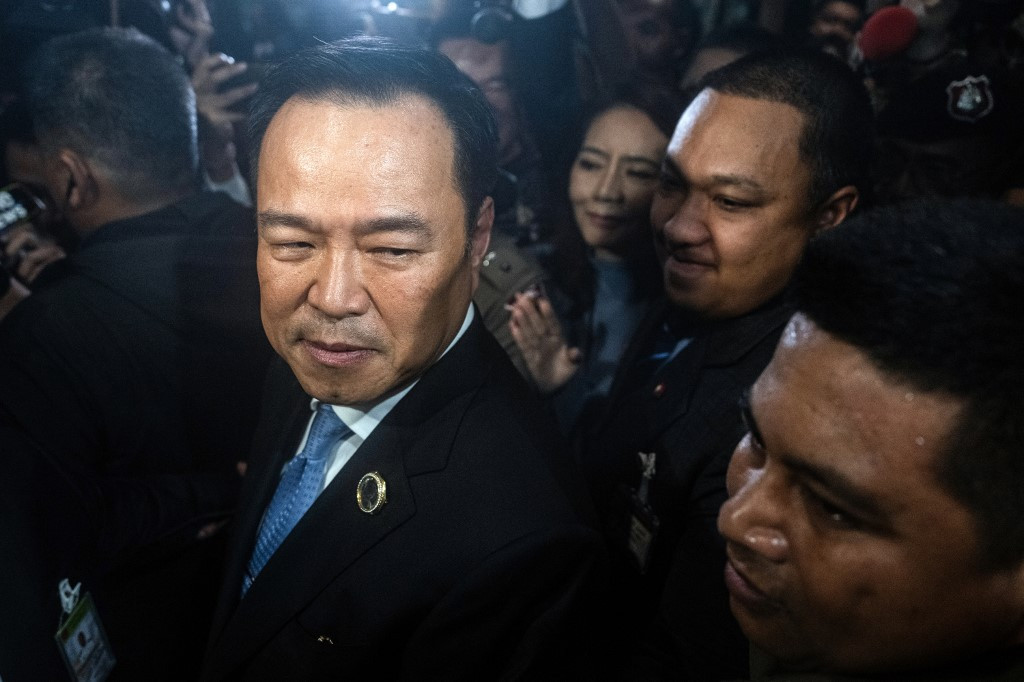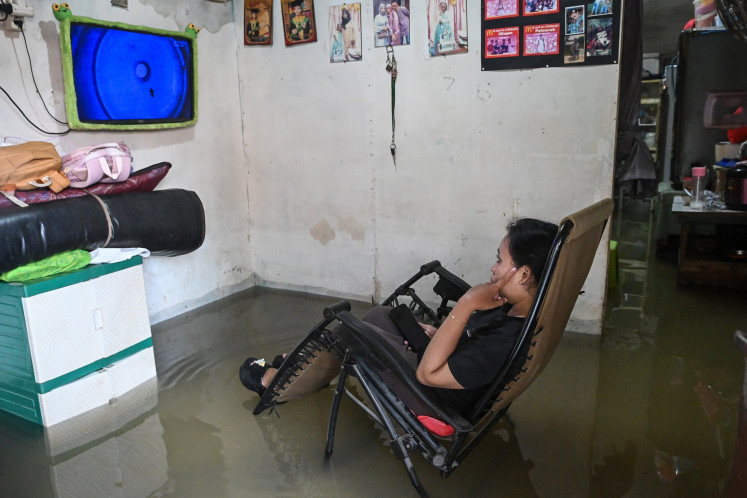Popular Reads
Top Results
Can't find what you're looking for?
View all search resultsPopular Reads
Top Results
Can't find what you're looking for?
View all search resultsThai military’s bad example
As a founding member, Thailand’s political instability undermines the regional bloc's principles of democracy, rule of law and good governance.
Change text size
Gift Premium Articles
to Anyone
F
or many leaders in Southeast Asia, particularly those in undemocratic or pseudo-democratic regimes, the Thai military's ability to maintain a tight grip on power since 1932 is a source of inspiration.
However, a closer look at universally accepted norms reveals that Thailand's military-backed system should be seen as a bad example. While the country's economic performance is often admired, this success primarily benefits a small elite at the expense of the general population.
Even Indonesian Military (TNI) generals, who are not known for staging coups, may be tempted by their Thai counterparts' methods. They may see a more "acceptable" mechanism than a direct military takeover—one that uses a legal pretext to seize power.
Since Thailand’s establishment in 1932, the military has launched 12 successful and at least nine failed coups. The most recent was in 2014 when Gen. Prayuth Chan-ocha ousted the democratically elected government of Yingluck Shinawatra. It was only after nine years that the military allowed tightly controlled general elections held in 2023.
Leaders in Cambodia, Laos, Myanmar and Vietnam often look to Thailand as a role model. They admire the country's ability to allow citizens to vote freely, all while ensuring that supreme power remains in the hands of unelected army generals, who collaborate closely with the Royal Family.
Political instability, marked by the frequent military coups, however, has barely prevented Thailand from accelerating its economic growth. After its successful agrarian-based economy, it moved to a manufacturing and service-based system. Its goal is to upgrade the country from a low-value, low-tech economy to a high-value, innovation-driven one.
Thailand’s economy has shown remarkable resilience primarily because its core drivers, such as the tourism and manufacturing sectors, are largely insulated from political chaos. A powerful and permanent bureaucracy also contributes to this stability by ensuring the continuous functioning of the economy.
Despite being a founding member of ASEAN, Thailand often distances itself from the regional bloc's policies, maintaining a significant economic and military influence on its neighbors, particularly those with whom it shares a border.
Apart from direct coups, the Thai military has a more sophisticated and less costly tool at its disposal: The Constitutional Court. Established in 1997 during the Asian financial crisis, the court has since dissolved 111 political parties, many of which were pro-democracy, including parties linked to former prime minister Thaksin Shinawatra.
Since 2008, the court has removed five prime ministers—all of whom were connected to Thaksin—for what many outsiders consider trivial reasons. This includes the ousting of Thaksin's sister, Yingluck Shinawatra, in 2014 and his daughter, Paetongtarn Shinawatra, in July of this year.
Indonesia's own Constitutional Court, established in 2003, initially gained public trust but has since been viewed as a tool of the political and economic elite. It will be remembered for its controversial decision in November 2023, which allowed Gibran Rakabuming Raka, then 37, to contest the presidential election as the running mate of Prabowo Subianto, bypassing the legal age requirement of 40.
Ultimately, the Thai military's offer of a legally sanctioned yet undemocratic path to power is a dangerous and tempting blueprint for leaders across the region, deemed as a primary driver of the Asia’s and global economic growth.
The power grab in Thailand will only weaken the collective democratic aspirations of ASEAN. As a founding member, Thailand’s political instability undermines the regional bloc's principles of democracy, rule of law and good governance outlined in the ASEAN Political-Security Community (APSC) blueprint.
While ASEAN may avoid direct condemnation, the presence of a member state where democratic institutions are routinely subverted weakens the credibility of the entire bloc. Even worse, the fact that the military has been able to seize power repeatedly without facing strong repercussions from its neighbors sends the wrong message that such actions may be tacitly tolerated in the region.











